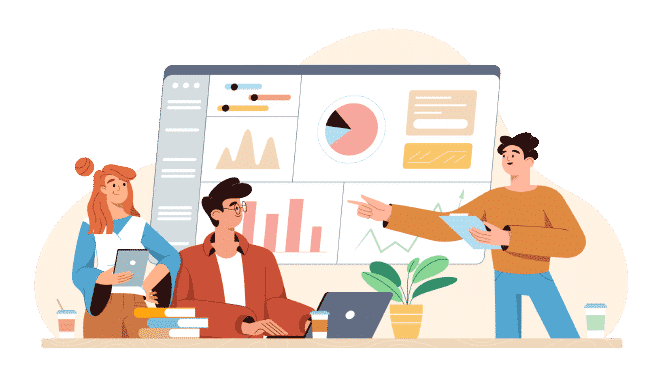Pay per click (PPC) advertising has become an integral part of online marketing strategies. Google, being the undisputed leader in the search engine market, offers a powerful platform for businesses to leverage pay per click cost and reach their target audience. However, with the increasing competition and the dynamic nature of PPC campaigns, optimizing your pay per click cost on Google is crucial for maximizing your return on investment (ROI). In this comprehensive article, we’ll explore 10 actionable tips to help you achieve optimal pay per click cost on Google.
Understanding the Fundamentals
Before diving into the specific tips, it’s essential to grasp the fundamentals of pay per click search marketing and how it operates on Google.
Keyword Research: Identifying the right keywords is the foundation of a successful PPC campaign. Conduct thorough keyword research to uncover relevant, high-intent keywords that align with your products or services. Tools like Google Keyword Planner can assist you in this process.
Quality Score: Google’s Quality Score is a metric that determines the relevance and quality of your ads and landing pages. A higher Quality Score can lead to lower pay per click cost on Google and better ad positions. Optimize your ads, landing pages, and website for a better Quality Score.
Tip 1: Leverage Negative Keywords

Negative keywords are words or phrases that allow you to exclude specific search queries from triggering your ads. By adding negative keywords to your campaigns, you can prevent your ads from showing up for irrelevant searches, which can significantly reduce your pay per click cost on Google. Regularly review your search terms report and add negative keywords to refine your targeting.
Tip 2: Implement Geo-targeting
Pay per click cost on Google can vary significantly based on location. By implementing geo-targeting, you can ensure that your ads are displayed only to users within your target geographic areas. This targeted approach can help you reduce unnecessary ad spend and increase the likelihood of conversions from relevant audiences.
Tip 3: Leverage Ad Extensions
Ad extensions are additional elements that can be added to your Google Ads to enhance their visibility and provide more information to potential customers. Extensions like sitelinks, callouts, and structured snippets can improve your ad’s click-through rate (CTR) and Quality Score, ultimately leading to a lower pay per click cost on Google.
Tip 4: Optimize Ad Copy and Landing Pages

Crafting compelling ad copy and designing high-converting landing pages are essential for maximizing your pay per click cost on Google. Ensure that your ad copy is relevant, attention-grabbing, and includes a clear call-to-action. Additionally, create landing pages that are directly aligned with your ad copy, providing a seamless user experience and optimizing for conversions.
Tip 5: Implement Bid Adjustments
Google Ads allows you to adjust your bids based on various factors, such as device types, locations, and ad scheduling. By implementing bid adjustments, you can allocate your budget more effectively and prioritize the segments that are most likely to convert, ultimately reducing your overall pay per click cost on Google.
Tip 6: Monitor and Optimize Continuously
Successful PPC in digital marketing requires continuous monitoring and optimization. Regularly analyze your campaign performance, identify areas for improvement, and make data-driven adjustments to your strategies. This proactive approach will ensure that you stay ahead of the competition and maintain optimal pay per click cost on Google.
Tip 7: Integrate SEO and PPC Strategies
While SEO and PPC are distinct marketing channels, integrating them can yield significant benefits. By aligning your PPC campaigns with your SEO efforts, you can leverage the synergies between the two and potentially reduce your overall pay per click cost on Google. For example, targeting keywords that you rank well for organically can lead to lower costs per click.
Tip 8: Leverage Remarketing Campaigns

Remarketing campaigns allow you to target users who have previously interacted with your website or engaged with your brand. These campaigns can be highly effective in nurturing leads and driving conversions, often at a lower pay per click cost on Google compared to regular campaigns.
Tip 9: Test and Refine
Continuous testing and refinement are essential for optimizing your pay per click cost on Google. Experiment with different ad copy variations, landing page designs, and targeting strategies to identify what resonates best with your audience. Leverage A/B testing and multivariate testing to make data-driven decisions and continuously improve your campaigns.
Tip 10: Consider Automated Bidding Strategies
Google Ads offers various automated bidding strategies that can help you optimize your pay per click cost on Google based on your specific goals. Strategies like Target CPA (Cost per Acquisition) and Target ROAS (Return on Ad Spend) leverage machine learning algorithms to automatically adjust your bids based on historical data and predicted conversions.
Optimizing your pay per click cost on Google is an ongoing process that requires a strategic approach, data-driven decision-making, and continuous refinement. By implementing the actionable tips outlined in this article, you can maximize the effectiveness of your pay per click on my website campaigns and achieve a better return on investment. Remember, successful paid search marketing is a combination of art and science, and staying up-to-date with the latest trends and best practices is crucial for long-term success.
FAQs
The cost of pay-per-click (PPC) advertising on Google can vary greatly depending on several factors, such as the industry, competition level, geographic location, and the quality of your campaigns. Typically, the cost per click can range from a few cents to several dollars or more for highly competitive keywords and industries.
Google provides extensive pay-per-click data and reporting through its Google Ads platform. This data includes metrics such as impressions, clicks, click-through rates, cost per click, cost per conversion, and more. Advertisers can access detailed reports and analyze the performance of their campaigns to make informed decisions.
Yes, Google operates on a pay-per-click (PPC) advertising model for its Google Ads platform. Advertisers create ads and bid on relevant keywords, and they only pay when a user clicks on their ad. Google does not charge for impressions or ad views alone.
Google Ads charges advertisers based on the cost-per-click (CPC) and the number of clicks their ads receive. If your ad received enough clicks to accumulate a total cost of $50, then Google Ads would have charged you $50 for that period. The specific reasons for the charge amount may vary based on your targeting, bid strategies, and campaign settings.
Google does not pay for clicks; instead, advertisers pay Google for each click their ads receive. The cost for 1,000 clicks can vary widely based on the industry, competition, and the advertiser’s bid strategies. Generally, the cost for 1,000 clicks could range from a few dollars to several hundred or even thousands of dollars, depending on the competitiveness of the keywords and the advertiser’s goals.
Google does not pay for individual ads. Instead, advertisers pay Google each time a user clicks on their ad. The cost per click (CPC) is determined by various factors, such as the advertiser’s bid, the competition for the keyword, and the quality of the ad and landing page.
Google’s advertising model is based on pay-per-click (PPC), not pay-per-view. This means that advertisers do not pay for ad views or impressions alone. Instead, they pay only when a user clicks on their ad. The cost per click is determined by factors like the advertiser’s bid, competition, and ad quality, but there is no direct cost per 1,000 views on Google Ads.
-
 Anas is our go-to copywriter with a knack for crafting persuasive and high-converting eCommerce landing pages. His passion for words and understanding of consumer psychology helps turn visitors into loyal customers. When he's not refining his copy, Anas enjoys exploring the latest digital marketing trends and experimenting with new writing techniques. His blend of creativity and strategic thinking makes him an indispensable part of our energetic team.
Anas is our go-to copywriter with a knack for crafting persuasive and high-converting eCommerce landing pages. His passion for words and understanding of consumer psychology helps turn visitors into loyal customers. When he's not refining his copy, Anas enjoys exploring the latest digital marketing trends and experimenting with new writing techniques. His blend of creativity and strategic thinking makes him an indispensable part of our energetic team.












